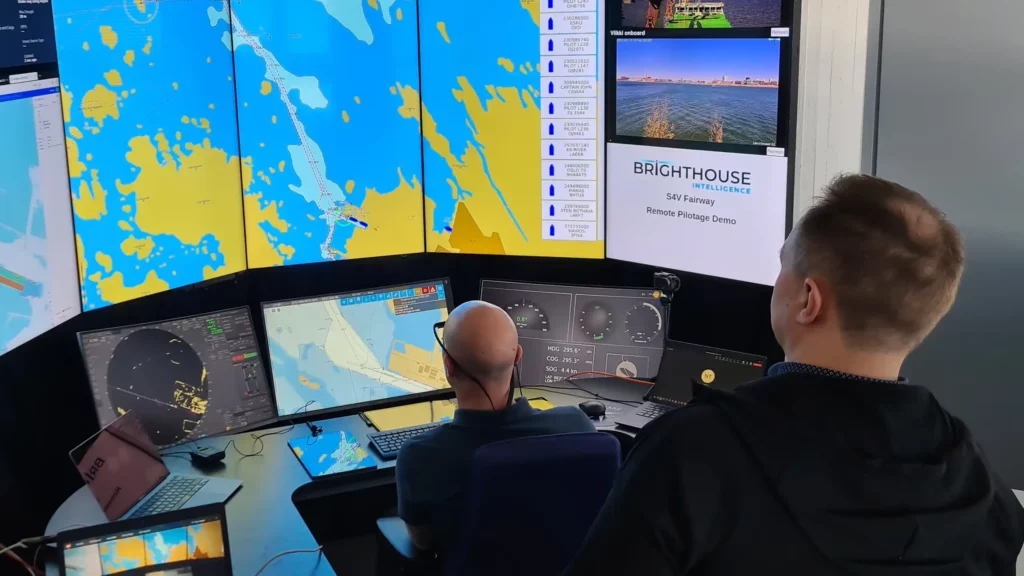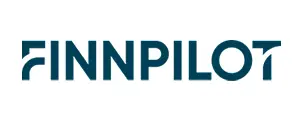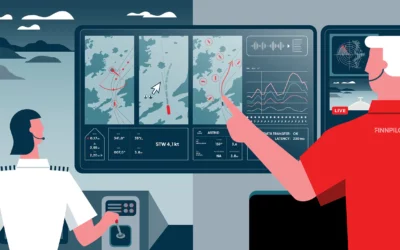The Remote Pilotage MVP project aims to develop and test a globally scalable remote pilotage solution, allowing ships to be piloted from shore. This involves an operational model, technical implementation, service modifications, assessing legislative and regulatory constraints, and collaboration with various stakeholders. Finland is a leader in this field, and the project seeks to establish the necessary building blocks for safe and effective remote pilotage services.

The project focuses on creating a remote pilotage solution that can be industrialized globally. It involves defining protocols, interfaces, and elements that can serve as a standard worldwide, regardless of the supplier. The technical solutions developed will benefit both autonomous and manned ships.
The project collaborates with several key stakeholders who bring in their special expertise. These include:
- Finnpilot and Fintraffic Vessel Traffic Services for pilotage and fairway services.
- Private maritime technology producers Brighthouse Intelligence, Groke Technologies, Furuno Finland, and Kongsberg Maritime Finland.
- ESL Shipping provides test vessels and expertise.
- Novia University of Applied Sciences as the coordinator and research partner.
The overarching objective is to develop a remote pilotage solution that can be industrialized globally within the next ten years. Specific objectives include:
- Defining the minimum viable solution.
- Ensuring shared situational awareness between the remote pilot and the vessel’s crew.
- Making the necessary ship data available for the remote pilot.
- Clarifying the interaction between fairway services and remote pilotage services.
- Developing technology and solutions for the Remote Pilotage ROC (Remote Operation Center).
- Testing and demonstrating the minimum viable solution.
The project aims to develop the most important technological solutions for a safe and functional remote piloting system. This includes defining the system from both operational and technical perspectives, testing, and demonstrating the mockup system.
The project methodology involves three main aspects:
- Precise definition based on previous research and partner expertise.
- Research focusing on existing gaps in technological solutions and operational aspects.
- Testing and demonstrating the developed system in practice.
The project is divided into seven work packages (WPs):
- Defining Remote Pilotage Services.
- Developing the Remote Pilotage Solution.
- Ensuring necessary ship data availability.
- Developing the Remote Pilotage ROC.
- Ensuring shared situational awareness.
- Improving situational awareness and safety of remote pilotage operations.
- System-level testing and demonstration.
The project is expected to have significant scientific, business, technical, social, and environmental impacts. It aims to improve maritime safety, efficiency, and sustainability, aligning with EU policy priorities and global challenges. The development of remote pilotage services will also contribute to a more agile and flexible supply chain with fuel-saving potential, supporting the transition to a climate-neutral and sustainable economy.

